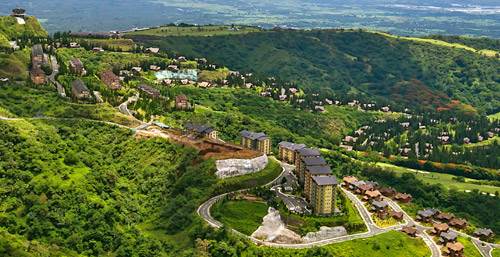
Reading Time: minutes
In the second installment of our Where to Live in the Philippines series, (click here to see Part 1) we'll be giving you an overview of some of the ideal location choices for expatriates thinking of retiring in the country. This list also offers a few tips in terms of cost of living, housing choices, as well as places to visit in these cities.
Tagaytay City, Cavite
Ideal for: Couples, Families, Singles, Empty Nesters
How to get there: Car, Bus
Popular Residential Developments: Tagaytay Twin Lakes, Tagaytay Highlands
Cost of Living: starting at $1000 to $2000 a month
Tagaytay is a popular retirement option mostly because of its strategic location: it's close enough to major CBDs Makati and Bonifacio Global City via major highways South Luzon Expressway and Skyway, and yet still far enough to provide the peace and quiet that most retirees are looking for. Tagaytay offers a cool climate because of its high altitude, lush green scenery, and an exquisite view of the Taal Lake, making it even more appealing to several foreign and Filipino retirees. It is also close to Laguna, known for having rich lands perfect for farms and gardens and Batangas, known for its beaches and vast lands as well.
Because it is a popular tourist destination, cost of living in Tagaytay can be more expensive than in other provincial areas. Monthly rent also tends to get higher as you move in more luxurious or high-end apartments or condos. However, vegetables and fruits are priced lower than in the city because most of the supply come from farms within the city's vicinity. Some Filipino retirees choose to invest in lots for sale where they build their houses together with small farms or gardens. As for expatriates and foreigners, they can't own lands in the country, so many opt to purchase condo units.
Baguio City, Benguet
Ideal for: Couples, Families, Singles, Empty Nesters
How to get there: Car, Bus
Cost of Living: $800 to $1500 a month
Similar to Tagaytay, Baguio City (dubbed as the Summer Capital of the Philippines) is also a top location choice for retirees because of its cold climate and environment -- it makes people feel closer to nature. The city also has a rich culture and history that attracts several local and foreign tourists. Baguio City was home to Americans taking a break from Metro Manila's warm weather during the colonial period; some establishments and roads built under the American regime are Camp John Hay (the site of the formal surrender of Gen. Tomoyoki Yamashita, marking the end of World War II), The Mansion (home of American officials and soldiers during the colonial period), Kennon Road (named after Col. Lyman Kennon), and more.
Several businesses have also set up shop in the area, attracted by the educated labor force, laidback lifestyle, and affordable cost of living compared to Metro Manila. The Baguio-Ayala Land TechnoHub located within Camp John Hay is a popular retail and offce space location as well as SM Cyber Baguio. Rent for a typical 2-bedroom apartment can cost around $350 a month or reach as much as $700 depending on the location and establishment. Food is also affordable, especially if you shop in local markets because most fresh produce are planted in the area. You can save on electricity since there is no need for airconditioning, only water heater for warm showers, though charges for water utilities can be a little more expensive compared to low-lying cities in the country.
Davao City, Davao del Sur
Ideal for: Couples, Families, Singles, Empty Nesters
How to get there: Airplane, Bus, Ferry, Car
Cost of Living: $600 to $1200 a month
Davao City is one of the fastest-growing cities in the Philippines and is also ranked as one of the safest cities in the world. As a budding business hub and a popular tourist destination, many expat retirees from different countries have chosen to move to Davao, prompting foreign governments from Japan, Palau, Malaysia, and United States to open consular offices in the city. Although it is still underway, Davao City is already poised to become the next-generation central business district in the country due to its untapped labor market, which also consists of highly educated Filipinos. Once it is completed, Davao will be able to offer the best of both business and leisure.
The cost of living in Davao is very affordable compared to other cities in the Philippines. You can rent a 2-bedroom apartment or single-detached house for as low as $250 a month, though this could reach up to $400 if you choose to locate in the business district. Food might be priced similarly to other areas in the country, especially if you eat in restaurants within the business district; however, it could be cheaper if you cook it yourself or if you hire a househelp who can shop in the local markets and get the best prices for meat, fish, and vegetables.

